What is social abuse?


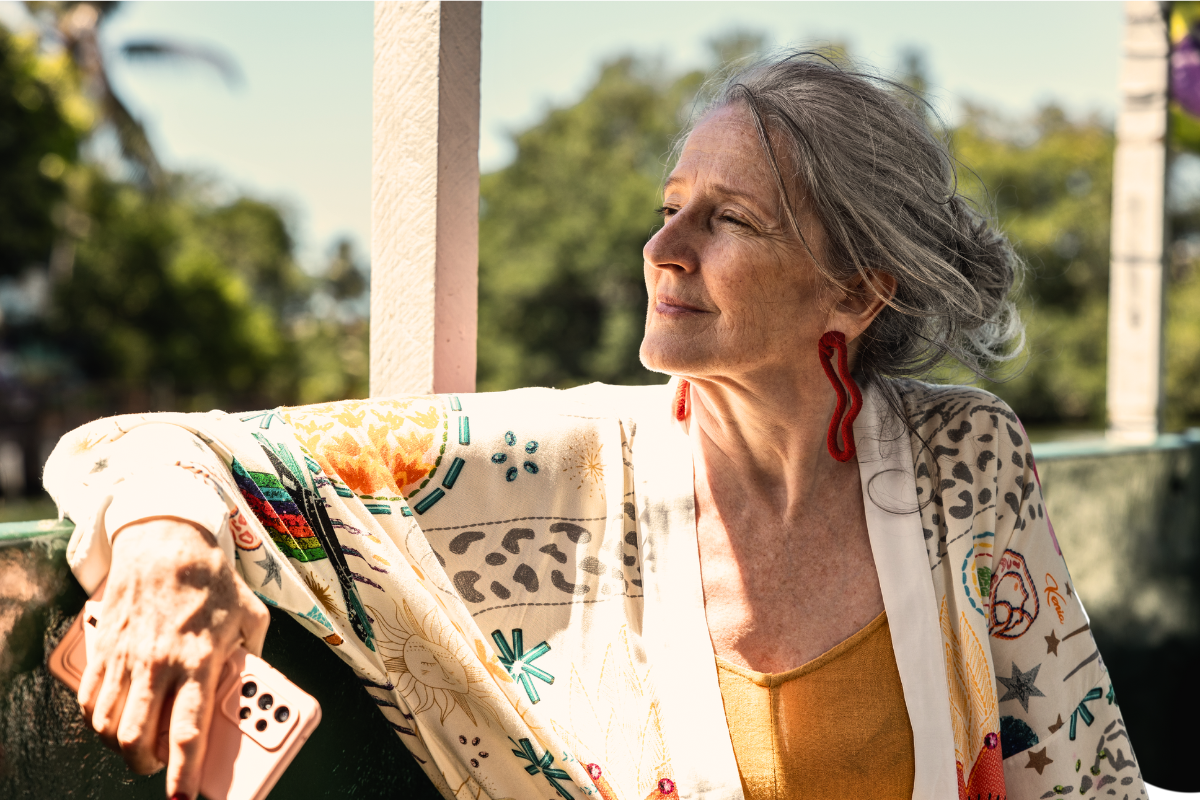
Respect, safety, and dignity are things that all Australians deserve in their relationships with others – regardless of their age.
Elder abuse, or senior abuse, is defined as the mistreatment of seniors by a trusted individual, usually a family member or carer.
It’s important for all of us to be informed about elder abuse and how to seek help when it occurs.
If you’re worried about yourself or an older loved one in your life, we discuss some free options for support and safety.
There are several types of elder abuse, and they can co-exist and overlap.
These are the types of elder abuse recognised in Australia:
Psychological elder abuse is the most common in Australia, followed by neglect.
You can learn more about the signs of specific types of abuse in this article, What is elder abuse?.
Abuse can be a very complex situation. It affects everyone differently, so the signs may sometimes be difficult to spot.
Signs can also be difficult to spot because sometimes, the perpetrator isolates the person they’re abusing. This is especially true in cases where social abuse is present.
Some signs you should check in on an older person might include:
These signs don’t always indicate abuse; they may indicate loneliness or mental health concerns.
Only one in three older Australians who experience abuse seek help.
It’s up to all of us to look out for the older people in our lives. They can be vulnerable to enduring abuse; for example, they may depend on the perpetrator for caretaking.
If you’re concerned about an older loved one, here are some resources you can use:
Here are some tips on how to talk to an older person you’re worried about.
If you or someone you know may be experiencing elder abuse, the Elder Abuse Prevention and Support Service (EAPSS) is here to help.
We provide free support, case management, resources, and referrals to keep you safe and connected.
You can contact EAPSS at 1300 063 232.

Everyone, regardless of age, deserves to feel safe and respected in their relationships.
Emotional abuse against elderly people is a type of elder abuse.
Emotional abuse, also called psychological abuse, can happen in any relationship where there is an expectation of trust. In the case of older people, the abuser may be a spouse, adult child, grandchild, carer, family friend, or neighbour.
In this article, we’ll discuss some signs of elderly emotional abuse to look out for in your older loved ones and free support options.
When someone is experiencing emotional abuse, they may become socially withdrawn from their family, friends, and community.
Often, an abuser will aim to socially isolate their victim to remove outside influences and make them more dependent on the abuser. Older people who rely on someone else for care and support are especially vulnerable.
The older person may also withdraw from their family and friends due to the shame, fear, or low self-esteem that the abuse is causing them.
Social isolation is dangerous for older people. It’s linked with increased risks of serious conditions such as dementia, premature death, and depression. If you notice an older loved one being more withdrawn than usual, reach out and check in on them. Here are some tips to talk to an older person you’re worried about.
Emotional abuse can take a huge toll on someone’s mental health. Abuse in older people is highly associated with depression.
Signs of depression caused by emotional abuse may include:
Signs of anxiety caused by emotional abuse may include:
Outbursts of anger can be a sign of being abused.
A person experiencing abuse may bottle up their emotions due to fear of expressing or communicating them. Bottling up can make a person easily irritated. Seemingly “normal” or “small” things may elicit an unbalanced response of anger.
These emotional outbursts should be responded to with gentle understanding. It may be a helpful approach to ask if there’s anything else going on that they want to speak about.
Emotional abuse can cause someone’s self-esteem to plummet, especially in the case of older people who often depend on their abuser or who may not have many other people in their life.
Signs of low self-esteem can include self-deprecating talk, poor self-care, and not accepting or asking for help.
Sometimes emotional abuse can wear someone down to seem like a “shell” of their normal self. They may seem uninvolved, uninterested, and unfazed.
Emotional abuse is damaging for anyone’s mental health, no matter how old they are. It’s important to be supportive and to continue reaching out to someone who you’re worried about.
If the older person seems to get worried or anxious before, during, or after being around a certain person, it may indicate that they feel unsafe around them. They may behave like they’re walking on eggshells.
If you’re worried that someone is perpetrating elder abuse, here are some actions you can take if it’s safe to do so:
The Elder Abuse Prevention and Support Service (EAPSS) helps older Queenslanders who are experiencing elder abuse. EAPSS provides free counselling, legal aid, referrals, and intervention services.
If you’re worried about yourself or an elderly loved one, you can call 1300 062 232 to learn more.
Here are some ways to help an older person you’re worried about.
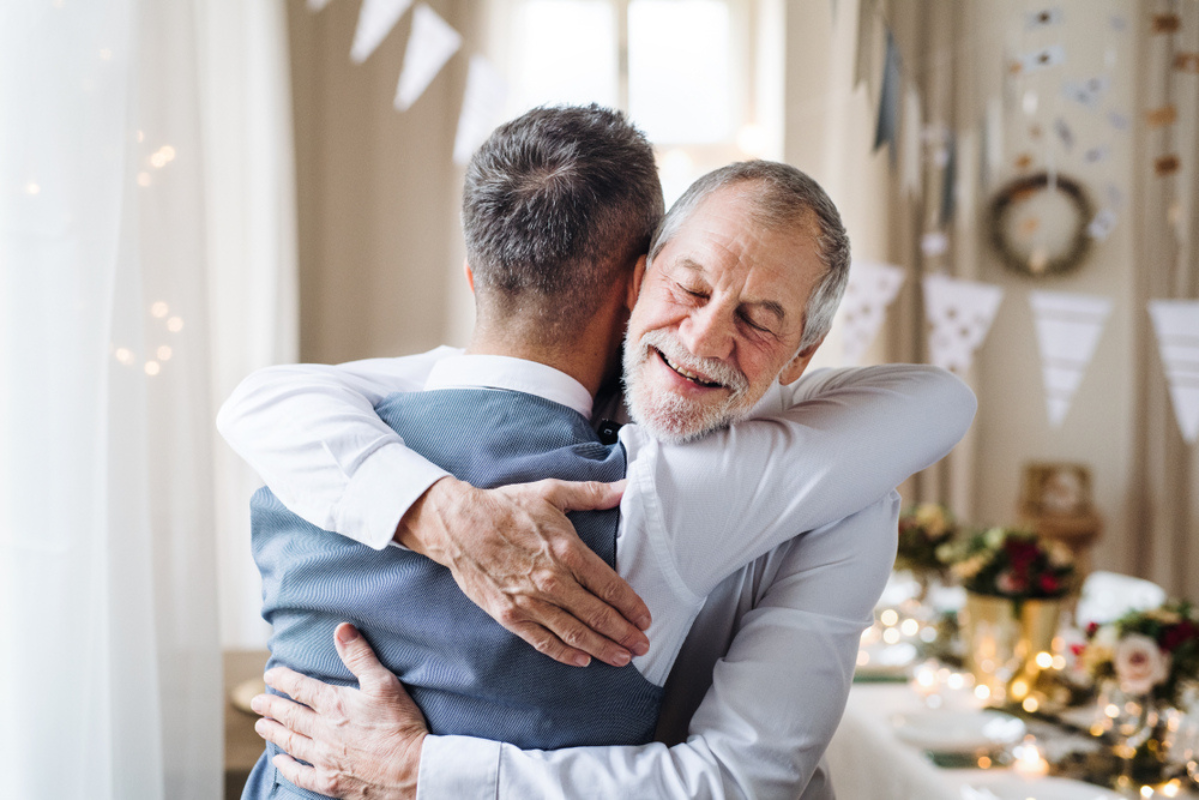
Elder abuse is any abuse against a senior or an older person. If you’re an older person who is feeling unsafe in any of your relationships, you may be experiencing elder abuse.
We provide free support for people in Queensland experiencing elder abuse. You can contact the Elder Abuse Prevention and Support Service (EAPSS) at 1300 062 232.
Worried about an older friend or family member? You may also contact our hotline if you’d like to confidentially report elderly abuse.
Signs that someone is being abused can be hard to pinpoint. It’s not always as straightforward as physical injuries, especially since there are different types of elder abuse.
Elder abuse may be psychological (also called emotional abuse), financial, sexual, or physical. Neglect and coercive control are also forms of abuse.
Psychological elder abuse is a series of actions and behaviours that intimidate the older person.
Coercive control is a specific type of psychological abuse. Coercive control is when the abuser exerts power over the victim. Older people are especially vulnerable to this type of abuse.
Financial elder abuse occurs when a trusted person takes advantage of an older person for financial gain. Financial abuse is the most reported type of elder abuse in Australia.
One in six Australian seniors report facing elder abuse in the past year.
Abuse doesn’t discriminate – anyone can find themselves in an abusive situation. Being abused doesn’t define you or change your value.
Certain risk factors can make an older person more vulnerable to experiencing abuse.
Risk factors for elder abuse include:
Men and women experience elder abuse at nearly the same rate.
In Australia, one in two perpetrators of elder abuse are a family member of the victim.
The most common perpetrators of elder abuse are the older person’s adult children or children-in-law.
Friends, neighbours, other family members, caretakers, and service providers are also commonly reported as perpetrators in cases of elder abuse in Australia.
72% of victims of elder abuse reported that their main perpetrator suffered from problems of their own – typically mental health issues, financial problems, and physical health problems.
Certain lifestyle habits can help protect yourself or an older loved one from experiencing elder abuse.
These tips can help protect someone from elder abuse:
We provide more information about protecting yourself from elder abuse in this blog post.
The Elder Abuse Prevention and Support Service (EAPSS) provides free counselling and resources for seniors in Queensland. We can help explore your concerns and possible solutions in a safe, supportive environment.
You may also contact our hotline if you are worried about someone else or to confidentially report elderly abuse.
You can learn more about our Elder Abuse Prevention and Support Service here, or call 1300 063 232.

Everyone, regardless of how old they are, deserves to feel safe and respected in their relationships.
If you’re feeling unsafe or scared around a specific family member, partner, friend, or caretaker, it’s critical to reach out for help. If there’s an older person you’re worried about, you may wish to reach out for help on their behalf or report the senior abuse they’re experiencing.
What happens when you reach out for help concerning elder abuse? In this article, we’ll outline what to expect when you contact our Senior Relationship Services hotline. To reach out for help or to report elder abuse in Queensland, please call the free Senior Relationship Services at 1300 262 032.
When you’re experiencing abuse, reaching out can be hard – we understand, and support is available.
Our Elder Abuse Prevention and Support Service (EAPSS) is a free service for seniors in Queensland. EAPSS provides support and assistance to those at risk of, or currently experiencing, elder abuse. This service offers individualised support and referrals.
EAPSS supports folks 60 or older who live in Queensland and are at risk or experiencing elder abuse (or 50 or older for First Nations Peoples).
Here’s what happens when you reach out for help for elder abuse with the free EAPSS:
Reaching out for help about abuse can feel difficult or scary. Here are some tips from our SRS case managers for your first call with our elder abuse hotline:
Thank you so much for helping. I feel like I can breathe a little. I really appreciate your help as I have never been in this situation before.
-EAPSS Client in Gladstone, QLD
Thank you so much, you understood what I was going through and were there for me. I now have a nurse who contacts me once a month. Your team was so nice to me, too.
-EAPSS Client in Mackay, QLD
My case manager helped so brilliantly. It seems like she’s the perfect person for the job.
-EAPSS Client in Gladstone, QLD
When I first spoke to you two years ago, I had already called six different organisations – you were the first who was able to point us in the right direction.
-EAPSS Client in Rockhampton, QLD
I’m doing well – trying to be strong with boundaries. I understand that my personal journey in healing will be a long one and I can’t heal if I keep letting the same things happen. You have been incredible; you saw me through some of the hardest weeks of my life and I’m so very grateful for that. I’m still seeing a trauma therapist every week, which is giving me new skills.
-EAPSS Client in Gold Coast, QLD
Elder abuse is any abuse against an older person. Elder abuse may be:
Financial abuse is the most common type of elder abuse.
Some signs of elder abuse include:
You can read more about the signs of elder abuse.
If you or an older loved one are experiencing elder abuse, the Elder Abuse Prevention and Support Services (EAPSS) provides free counselling and safety resources for seniors. Ring our senior abuse hotline for a free, confidential chat at 1300 262 032.
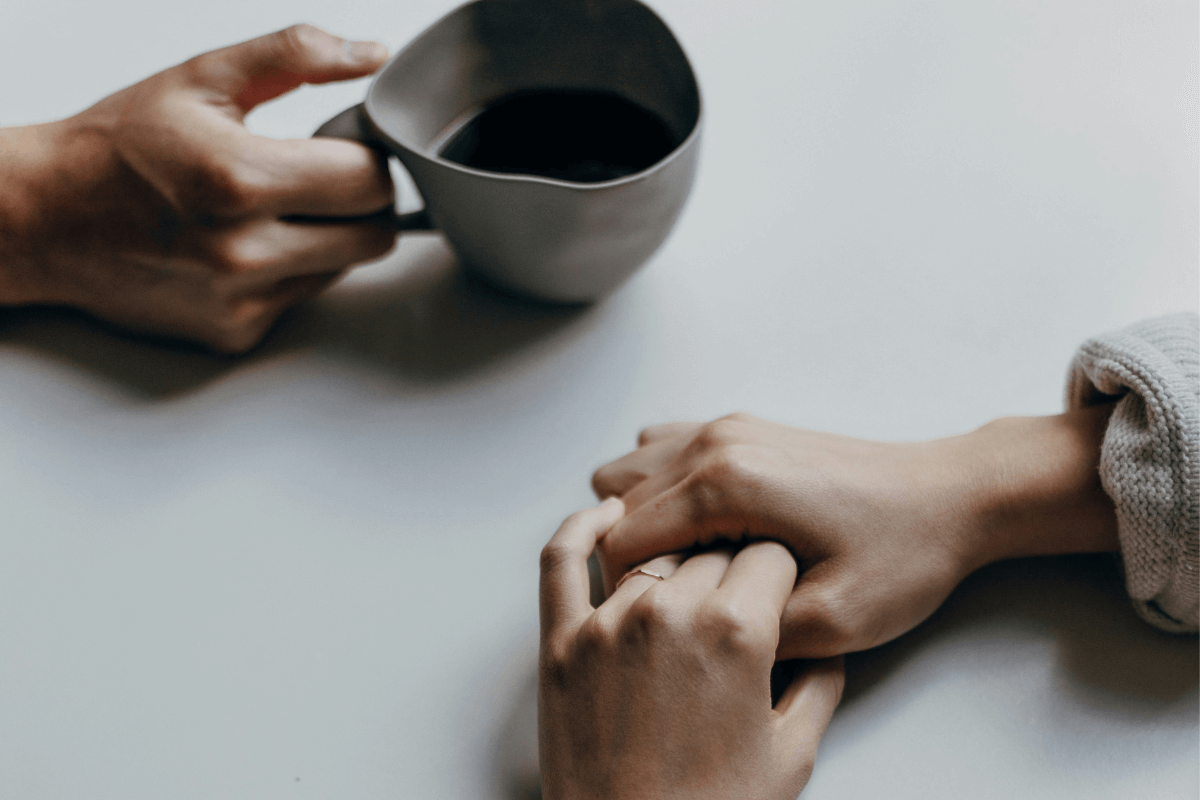
By CEO Natasha Rae
After over a decade of advocacy, the Queensland Government has passed legislation to criminalise coercive control as a standalone offence.
Behaviour from adults such as verbal abuse, financial control, emotional abuse, and social isolation will carry jail sentences of up to 14 years when the laws come into force next year.
These changes will aim to address Australia’s alarmingly high rate of domestic abuse.
The Australian Bureau of Statistics (ABS) reported that 23% of adult women and 16% of adult men have experienced emotional abuse by a partner since the age of 15. They also showed 58% of women and 26% of men who experienced emotional abuse from a partner were also victims of physical or sexual violence by a partner.
Think of Australia as a dinner party you’re hosting with 20 of your closest friends and family. This might include your parents, siblings, and oldest friends.
Of those 20 people sitting, chatting, and laughing around the dinner table, four of your guests would have experienced emotional abuse from their partner. Two would have experienced physical or sexual violence from their partner.
It’s uncomfortable to talk about how high that number is. It can be even more uncomfortable to talk about what coercive control looks like, and what effects it can have on victims and survivors.
But staying comfortable comes at a cost. It keeps these issues hidden, unreported, and ongoing.
‘Coercive control’ is still a reasonably young concept. Many Queenslanders don’t know what behaviour is being criminalised or how these laws will protect them.
This type of abuse can be especially harmful as it can be difficult to ‘prove’, and easy for the perpetrator to manipulate their victim into thinking they’re just being sensitive.
Controlling and manipulative behaviours may even be disguised as ‘caring’ or ‘protective’. For example, someone might demand to know where their partner is at all times and say it’s “just because they care”.
So how does the public gain enough information to know what constitutes ‘coercive control’ and report these behaviours? We need to be comfortable having uncomfortable conversations about coercive control.
Advocates of these law changes, such as the families of domestic violence victims Hannah Clarke and Alison Baden-Clay, have been heroic in their efforts to bring these issues into the public eye. And it’s time we all learn from their brave examples and talk about what behaviours might suggest someone isn’t okay.
These might include some of the warning signs someone is experiencing coercive control in their relationship, such as:
We also need to be prepared for these conversations to arise themselves. As these laws are enforced and cases begin to be reported, it’s likely we’ll be confronted with situations where one of our dinner guests will have experienced coercive control. Will we be well-positioned to help support that person?
Reducing coercive control in our communities requires everyone in the community to care.
We’re experiencing a domestic and family violence epidemic. It’s taking lives, and it impacts all of us. It’s time we accept the uncomfortable reality that our loved ones may not be okay.
These historic laws are a significant step in protecting survivors and holding perpetrators accountable.
But for these laws to be truly effective, all Queenslanders need to educate ourselves on what they mean, be prepared to have the tough conversations – whether that’s privately or at a dinner party – and challenge our own discomfort to be part of the solution.
You can learn more about coercive control here.
If you or someone you know is living with a controlling or abusive partner, help is available. You can call us on 1300 364 277 for guidance finding the right support for you.
1800RESPECT: 1800 737 732
DVConnect Womensline: 1800 811 811
DVConnect Mensline: 1800 600 636
Sexual Assault Helpline: 1800 010 120
Kids Help Line: 1800 55 1800
Lifeline: 13 11 14
If you believe you or your children are in immediate danger, please call 000.
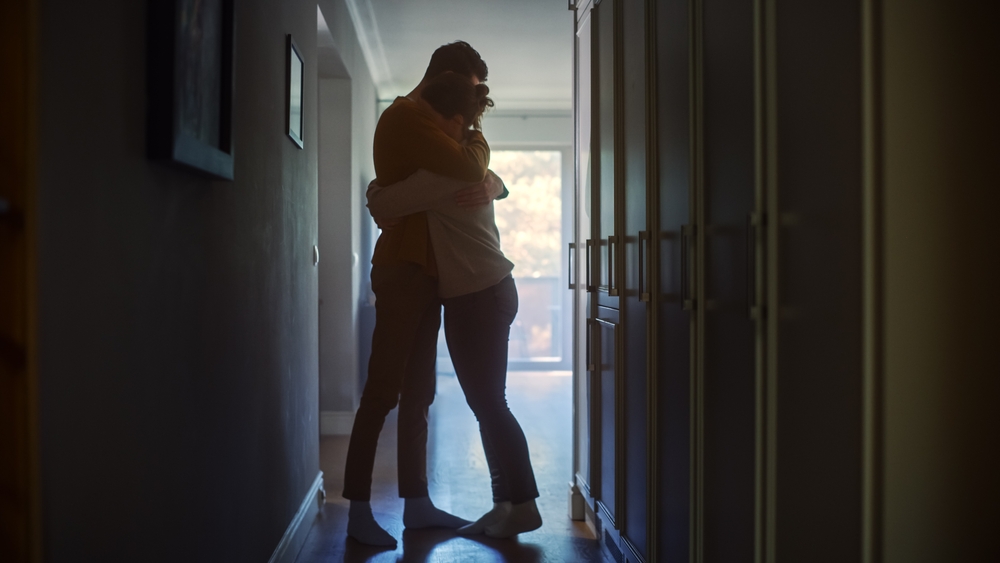
Does your partner use control, manipulation, or intimidation to influence your behaviour?
Control in a relationship can range from telling you what you can and can’t do to more subtle manipulation tactics, such as withholding affection when they don’t get their way.
Because controlling behaviours can be subtle or even disguised as “caring” or “protective”, they can be harder to identify than some other types of abuse.
If your partner uses control in your relationship, you might experience:
Coercive control is a dangerous form of domestic abuse and can be just as damaging as physical violence.
Depending on your situation and how safe you feel, these steps can help you address the issue and potentially prevent the behaviour from escalating.
If you believe you or your children are in immediate danger, please call 000.
If you’ve noticed a pattern of controlling behaviour and feel safe addressing the issue, it can help to raise it with your partner early on.
Here are some tips to help you start the conversation.
Chances are you won’t be in the headspace to discuss heavy topics after a stressful day at work or in the heat of an argument.
Find a time when you’re both feeling calm and can focus on the conversation in an open and productive way.
If you have children, it might help to wait until they’re in bed or out of the house so you can talk without distractions.
Coming at your partner with blaming statements can make them defensive right off the bat. Avoid “You” statements like:
Instead, focus on communicating how you feel in response to your partner’s actions with “I” statements such as:
Using specific examples and being honest about how you feel can help your partner see your point of view rather than feeling like they’re under attack.
It’s important to give your partner the space to share how they feel.
Listen with curiosity and respect with the intention to understand their point of view. Resist the urge to interrupt or dismiss their perspective, and be mindful of your body language while they’re speaking.
By really listening to each other, you’ll be more likely to come to an understanding and work together on a resolution.
If you don’t feel safe confronting your partner about their behaviour, we encourage you to seek professional advice from a counsellor or a domestic violence support service such as DVConnect or 1800RESPECT.
Boundaries help us create limits and expectations around what we’re willing and unwilling to engage with in our relationship. They allow us to build healthy, safe connections and avoid resentment.
Some examples of healthy boundaries with a controlling partner might include:
It’s important to remember there’s a difference between setting a boundary and controlling your partner’s behaviour.
Some examples of control disguised as boundaries might include:
These are some examples of control and not healthy or reasonable boundaries in a relationship.
Control is a harmful form of abuse on its own, but it can also be a sign that the abusive behaviour might escalate.
No matter the severity of the behaviour, if something feels off about how your partner’s treating you, having someone to confide in can help you feel supported and less alone.
Controlling partners often aim to isolate their victim from their support network, and this can put you in an unsafe position. Reach out to a trusted friend or family member to tell them your concerns and let them know to keep an eye on you.
It can also be helpful to have a witness should you need to involve the police. You might even like to keep a record of incidents for possible use in future.
A lot of the time, the need to exert control over an intimate partner is a symptom of deeper issues such as low self-esteem, jealousy, and fear of abandonment.
If your partner is open to it, professional counselling can help you identify and address underlying issues that may be causing unhealthy behaviours.
We offer counselling for individuals and couples in a supportive space to help you explore your issues and find solutions for a healthier, happier relationship.
Everyone deserves to feel safe and respected in their relationship.
If you’re questioning your relationship or feeling confused about whether to stay or leave, it can help to have a safety plan organised just in case.
Abuse can escalate after a breakup, so it’s important to have some steps in place to keep yourself safe.
We provide advice in our blog post How to Get Out of an Abusive Relationship, and our counsellors can help you create a safety plan so you know what to do if you need to leave an unsafe environment in a hurry.
If you or someone you know is living with a controlling or abusive partner, help is available.
You can call us on 1300 364 277 for guidance finding the right support for you, or learn about our Domestic and Family Violence Prevention service here.
1800RESPECT: 1800 737 732
DVConnect Womensline: 1800 811 811
DVConnect Mensline: 1800 600 636
Sexual Assault Helpline: 1800 010 120
Kids Help Line: 1800 55 1800
Lifeline: 13 11 14
If you believe you or your children are in immediate danger, please call 000.
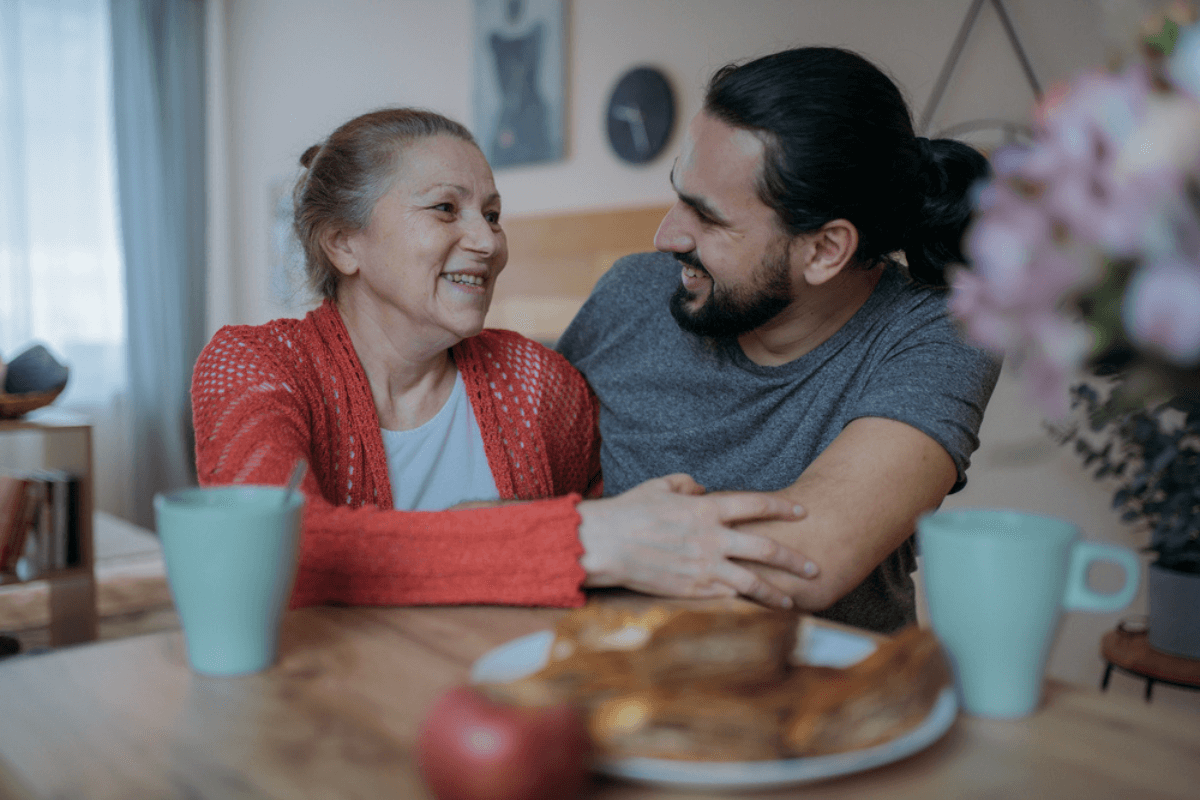
When your children grow up, it’s natural for your relationship with them to change.
However, if you’re arguing or experiencing conflict with your grown children, it can feel upsetting. You may feel disrespected or that your wants and needs aren’t being honoured.
In this blog post, we offer some tips on resolving conflict between you and your adult child, as well as how to identify elder abuse.
Time and place are critical when having a difficult conversation.
It’s ideal to start the conversation when both of you have enough time so that nobody feels rushed.
Sensitive conversations should be had somewhere private and comfortable for both parties. You may prefer to speak somewhere neutral, like a café or on a park bench, instead of one of your homes.
Here are a few tips for healthy, effective communication:
Here is a resource about positive communication with family members.
Take the time to calmly explain how the conflict is affecting you. Listen and pay attention to your adult child’s point of view, too.
By having an open, honest conversation, you may learn something new about each other and can make headways in resolving your disagreement.
Boundaries establish how you’d like to be treated by others and how much you’re comfortable contributing to a relationship. They protect us emotionally, mentally, and physically.
Boundaries can be based off other people’s behaviours which make you uncomfortable. These behaviours may include unexpected visits to your home, phone calls at inappropriate times, or being asked to borrow money.
Examples of boundaries with adult children may include:
Compass offers a guide on setting boundaries with adult children and grandchildren.
Self-compassion can protect your mental health when you’re in the middle of a conflict with your adult child.
Your value doesn’t change because of your age or because your children are adults now. In fact, age brings many strengths, like wisdom and experience.
Your age is no excuse for someone to treat you differently – the mistreatment of older folks because of their age is called .
Mediation is a professionally guided meeting which helps families when they are arguing or having problems.
Family mediation provides an opportunity for open, honest conversations in a safe environment under the guidance of a mediator. Families can learn healthy ways to manage disagreements and develop plans to move forward from problems they may be having.
You can learn more about family mediation for older people and their families in our blog post, What is family mediation?.
If you feel unsafe doing any of the recommended conflict resolution tactics above, it’s important to learn the difference between a typical disagreement and elder abuse.
Adult children of the elderly victim are the most common perpetrators of elder abuse.
You may be experiencing elder abuse if:
You can learn more about abuse against older folks on our Understanding Elder Abuse page. The Elder Abuse Prevention and Support Service (EAPSS) is here to support seniors in Queensland.
If you or an older person you know are in a conflict with an adult child, our experienced counsellors are here to help. We can help you explore your concerns and possible solutions in a safe, supportive environment.
You can learn more about our Senior Relationship Mediation Service here, or by calling 1300 063 232.
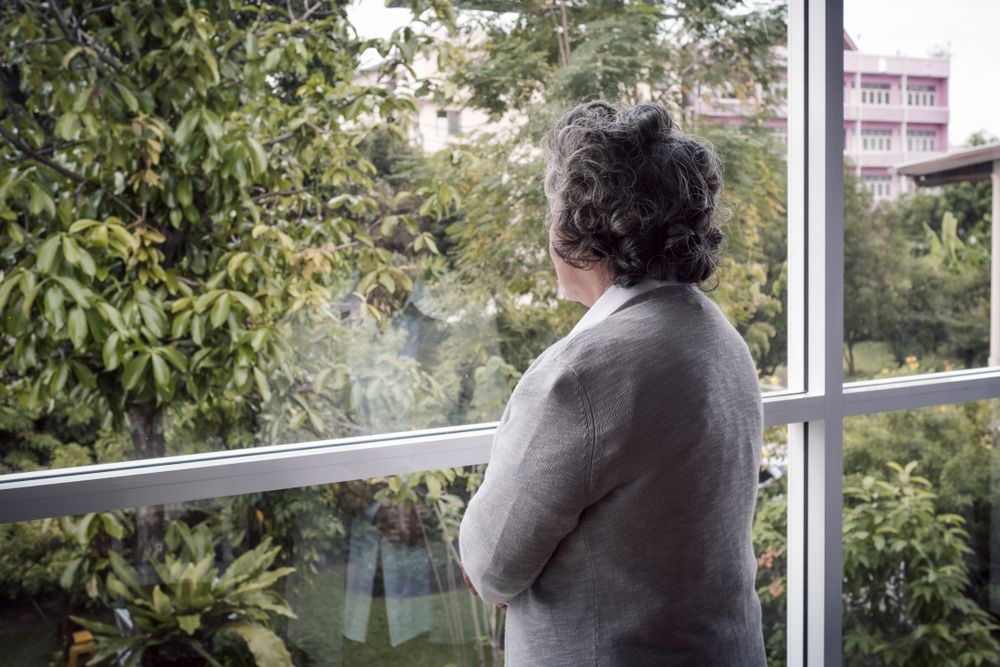
Every person, no matter how old they are, deserves to feel safe and cared about by their family, partner, friends, and carers.
Neglect is the failure to provide someone with necessities such as food, shelter, or medical care – or preventing someone from accessing these necessities.
The neglect of older people is a form of elder abuse.
In this blog post, we’ll discuss signs of elderly neglect, why seniors are vulnerable to neglect, and what resources are available for someone experiencing neglect.
Inadequate clothing may be clothes which are unclean, damaged, or inappropriate for the weather.
An older person lacking medical or dental care may indicate neglect.
Preventing someone from receiving care from anyone else, including healthcare providers, is an abusive behaviour.
Examples of lack of medical or dental care include:
Is the older person missing their required medical aids such as hearing aids, walker, dentures, or medication? These may be signs of neglect which need to be addressed immediately for the health and safety of the older person.
Untended hygiene or appearance may include unbrushed hair, unbrushed teeth, dirty skin or nails, or body odour.
Bleeding wounds, infections, or untreated broken bones can be a sign of neglect. In any case, the person is not receiving proper care and will require immediate support.
If the older person is complaining about the temperature in their home, it may indicate there isn’t proper heating or air con, or that they are restricted from using these utilities.
Especially in Queensland, not using the air con can be extremely dangerous for older people. Usage of air con and fans should not be restricted.
Improper living conditions may include:
These signs may indicate neglect in the form of improper nutrition. A carer should provide, or ensure access to, enough healthy food and clean drinking water.
Sometimes older people become less able or unable to look after themselves. It’s normal for an older person to depend on someone else for care, such as a family member, aged care staff, or a hired caretaker.
When one person is dependent on another, there is unfortunately potential for abuse and neglect.
The person experiencing abuse may be afraid to reach out for help, or may not even realise they’re being abused. That’s why we should all look out for these signs of neglect in our older loved ones.
Did you know that one in six older Australians have experienced abuse in the past year? However, only one in three seek help.
There is no shame in reaching out for support.
The Senior Relationship Services (SRS) offer free support and referrals to older Queenslanders. Our Elder Abuse Prevention and Support Service (EAPSS) helps older folks who are experiencing elder abuse, including neglect.
If you or an older person you know may be a victim of elder abuse, our experienced staff are here to help. We can help you explore your concerns and possible solutions in a safe and supportive environment.
You can learn more about our Elder Abuse Prevention and Support Service here, or call 1300 063 232.

Do you use control over your partner to get what you want?
Controlling partners use power and control through manipulative behaviours such as blame, guilt, and criticism. Controlling behaviour becomes abusive when it’s coercive or threatening.
Coercive control is a form of domestic abuse that can cause serious ongoing harm. It can exist on its own without physical abuse, and might include behaviours such as guilting your partner for spending time away from you or wanting to know where they are and who they’re with at all times.
A lot of the time, the use of control in a romantic relationship stems from insecurities and fear of abandonment.
“Control is really an illusion and will not create a loving, safe relationship where two people can be totally themselves and grow together,” explains Relationship Counsellor and Regional Manager, Val Holden.
“In fact, it can create the opposite, where two people are living in a stressful, unhealthy relationship where no one gets their needs met.”
If you notice controlling behaviours in yourself, it’s important to address these unhealthy patterns early to create a healthier dynamic and prevent further harm.
Val explores the use of control in relationships and offers some advice for how to stop trying to control your partner.
There are many reasons why someone might use control in their relationship, such as:
“Fear of losing someone you love is often the driving force behind control in a relationship,” Val explains.
“This can make you act in a very jealous way and want to control and know exactly what your partner is doing and where they are at all times.”
Whether the person using control is aware of these tactics or not, they often don’t realise that they can ultimately drive their loved one away, not keep them close.
Controlling behaviours can even feel like a knee-jerk response out of fear or desperation when anxiety and jealousy in a relationship are triggered.
Control in any relationship can cause serious damage – whether it’s within a romantic relationship, between family members, or in the workplace.
“Wanting to control another person’s actions, behaviours, and beliefs is not a healthy way to behave in a relationship,” says Val.
“The other person can feel threatened, afraid, stifled, and not able to be themselves.”
While control is often used to keep your partner close, it often results in the opposite, Val explains.
“Trying to control your partner may result in them not sharing with you,” she says.
“This can then feed into your own fears and insecurities, which will trigger your need to find out what is happening. You may get upset and angry, start asking lots of questions, make accusations, and end up arguing and fighting.”
This can start the vicious cycle of mistrust and lying. One party is increasingly frightened to be open so begins to hide where they’re going and what they’re doing.
The controlling partner begins to feel left out, rejected, and paranoid, which may exacerbate their insecurities and need to assert control over their partner.
The good news is you can address these behaviours and make healthy changes for yourself and your partner.
Val suggests the following approaches to try to address the issue and find healthier ways to cope:
Learning about yourself and the reasons why you’re using control over your partner can be an important first step to making healthy changes for your relationship. Both you and your partner deserve to feel safe and secure in your relationship.
Our counsellors can help you identify and address any underlying issues within yourself that may contribute to harmful relationship patterns.
You can call 1300 364 277 to make an appointment or to learn more about our counselling services here.
We explore more examples of coercive control in_this article.